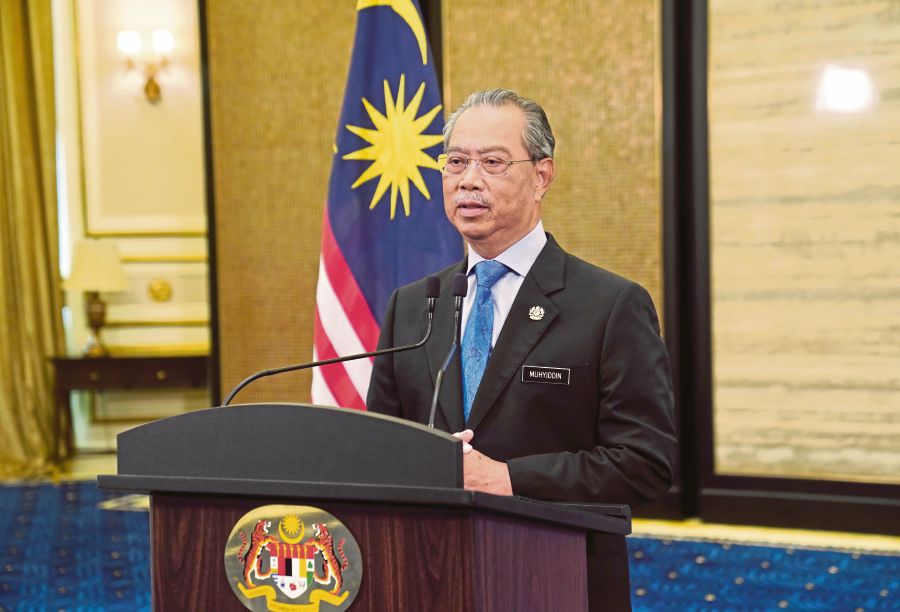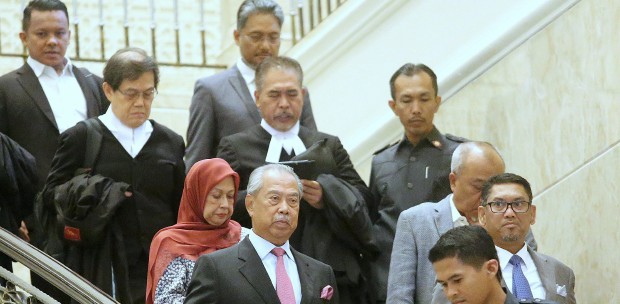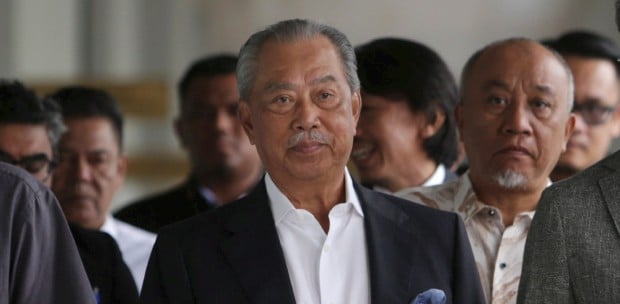SOME people would have us believe that the declaration of emergency last Tuesday by Yang di-Pertuan Agong Al-Sultan Abdullah Ri'ayatuddin Al-Mustafa Billah Shah was not genuinely intended to address the Covid-19 pandemic but actually to save Tan Sri Muhyiddin Yassin's political career.
Their main grouse was that as a result of the Emergency, the Dewan Rakyat cannot sit and therefore, a vote of no convidence against Muhyiddin cannot be tabled, thereby preventing Datuk Seri Anwar Ibrahim from becoming the next prime minister.
They argue that the lockdown measures implemented under the existing law (Prevention and Control of Infectious Diseases Act 1988 and the Movement Control Order made under it) are sufficient to address the pandemic, without resorting to emergency powers.
But is it so? As of Thursday, the daily new Covid-19 cases have reached a new peak (3,337 cases), whilst the number of deaths on that day alone was 15, bringing the total of Covid-19 deaths since last March to 578 cases.
We have currently 33,989 active cases. If not for the Emergency proclamation, the probability is that it will increase further.
These people who oppose the Emergency because Parliament is suspended (thus denying them the opportunity to table the vote of no confidence against Muhyiddin) are unhappy because they are deprived of having the 15th General Election (GE15) early this year, purportedly to "seek a fresh mandate" from the electorate to form a new strong government.
They clearly have forgotten the catastrophic effect of the recent Sabah state election and seem to be in denial that if GE15 is held now, the effect will certainly be much worse.
A Barisan Nasional politician was reported as saying (in support of holding GE15 now) that "If people can queue to get their food, what is the problem of queuing to cast a vote?"
Anwar is clearly unhappy, exhorting the members of parliament (MPs) to petition the king to "revoke" the proclamation. In his letter to the MPs, he said, the prime minister had "misadvised the king as the Emergency proclamation is not related to the Covid-19, flood or economic issues" and "is in fact more focused on bolstering his hold on power".
Former Federal Court judge Datuk Seri Gopal Sri Ram, however, welcomed the Emergency, saying that it is "legally and medically justified" because the Movement Control Order (MCO) alone was not adequate to fight the pandemic; it could only be effective when complemented with the state of emergency.
Sri Ram told a news portal: "Citizens are very difficult to control. You tell them you don't go to Ipoh, they will go. You tell them please don't go to Johor Baru, that is the place everybody will go, because they want to find out why they have been told not to go there."
In his address to the nation, Muhyiddin said Parliament would be suspended and elections would not take place for the time being.
But he promised that a general election would be held once the pandemic outbreak has been brought under control, that the declaration is not a military coup and a curfew will not be enforced.
He added that a civilian government will be maintained and emergency powers may be used to commandeer private healthcare facilities and even increase penalties for standard operating procedure (SOP) violations.
An independent committee of health experts and bipartisan lawmakers will be set up to advise the king as to when it is appropriate to terminate the Emergency.
With the public healthcare system at almost breaking point, Health Minister Datuk Seri Dr Adham Baba was reported as saying that Covid-19 patients with mild or no symptoms will undergo quarantine at home.
Universiti Sains Malaysia academican Dr Azeem Fazwan Ahmad Farouk said the Emergency would provide political stability that has been sorely lacking. "We need this stability and (we need to) stop the vicious politicking to address Covid-19".
He added: "Although the present government is hanging by a thread, most level-headed people would agree it would be suicidal to hold a general election in the next two months."
On Wednesday, a journalist asked my views and I told him that I shared Sri Ram's opinion on the matter.
The Emergency is necessary, not a political expedient, and I am confident that the king had given careful consideration to all factors before acceding to the request by the prime minister last week.
The Emergency provides a timely respite from an endless series of political squabbles and posturing, a state of affairs that the general public has grown tired of witnessing.
The writer, a former federal counsel at the Attorney-General's Chambers, is deputy chairman of the Kuala Lumpur Foundation to Criminalise War
The views expressed in this article are the author's own and do not necessarily reflect those of the New Straits Times






